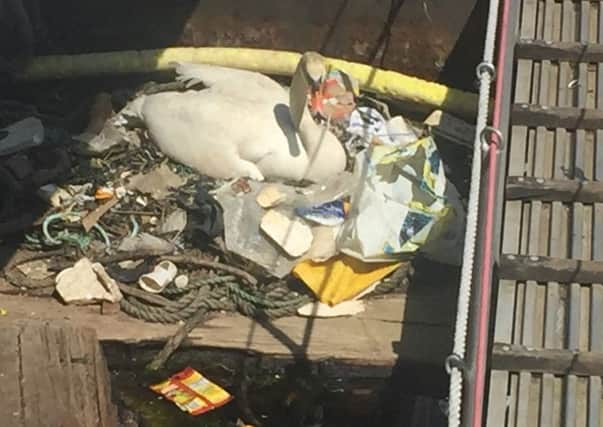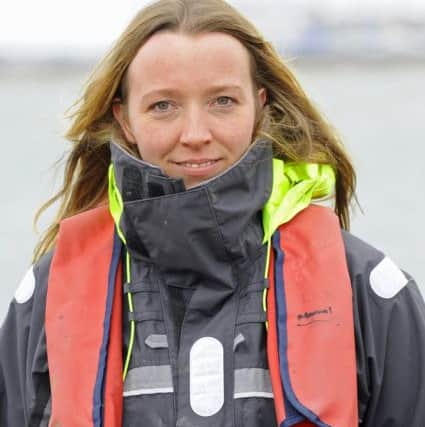Warning about marine litter as swans found nesting in rubbish in Portsmouth


Louise MacCallum said she was heartbroken after seeing the swans protecting their eggs in a nest of discarded crisp packets and plastic bags.
She came across the nest at The Camber in Old Portsmouth and said she felt compelled to highlight the threat of marine litter.
Advertisement
Hide AdAdvertisement
Hide AdThe scientist, who is the environment officer for Langstone Harbour, said: ‘Mute swans normally create a large nest made from dried grasses and assorted vegetation, sticks, rushes and seaweeds.
‘The nest is built by the female swan using materials collected and supplied by the male swan.
‘If plastic waste and other marine litter are the most readily available materials to the swans during nest construction, then they will use this to build their nests instead.
‘It is true to say that the Camber cygnets are likely to be okay when they hatch, and will hopefully leave their horrific-looking nest without trouble.
Advertisement
Hide AdAdvertisement
Hide Ad‘Mute swans are large and very robust birds and this is by no means the only swan nest in the UK containing litter in its construct.


‘Attempts to remove the litter now would cause massive amounts of stress to the parent birds.
‘The thing that made me so sad was that the nest represents the ugly truth about humankind’s disregard for the health of our oceans.
‘Irresponsibly discarded litter – and the nest contains crisp packets, polystyrene cups and plastic bags – can persist in the environment for a very long time.
Advertisement
Hide AdAdvertisement
Hide Ad‘Some plastics are likely to take more than 1,000 years to decompose. Some plastics never will decompose.’


And Ms MacCallum added: ‘We live in a country with extraordinarily advanced waste infrastructure systems in place. All you need to do is put your litter securely in a bin to stop it entering the ocean and forming part of next year’s Camber swan nest.’